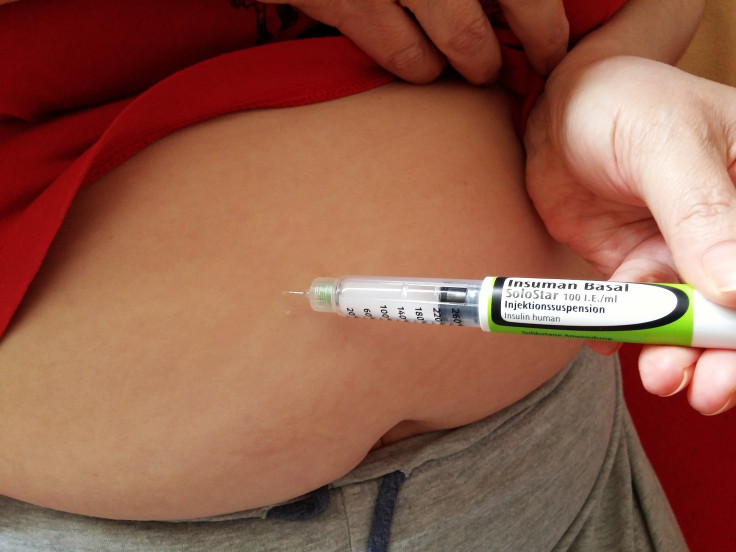Painless Insulin Delivery: New Type Of Drug Capsule To Replace Injections For Diabetes
Scientists have developed a new type of drug capsule that could replace insulin injections for diabetes and other protein drugs that could not be delivered orally.
Researchers from Melbourne, Australia, designed a capsule to administer protein drugs that would otherwise degrade very quickly in the stomach. The capsule protects the drug inside a special coating that would be passed safely through the stomach to the small intestine.
"The capsule has a special coating designed to not break down in the low pH environment of the stomach before the higher pH levels in the small intestine trigger the capsule to dissolve," said study first author Dr. Jamie Strachan, from RMIT's School of Science.
Out of more than 30 million people with diabetes in the U.S., approximately 7.4 million depend on insulin to manage their condition. Insulin is one of the most costly drugs on the market.
All type 1 diabetes patients and some people with type 2 diabetes need to take insulin injections to keep their blood sugar levels under control. Without these daily injections, sugar levels can increase and lead to severe health problems such as diabetic ketoacidosis. It is an acute, life-threatening complication that causes more than 500,000 days of patient hospitalizations each year.
"These types of drugs are typically administered with an injection – thousands of diabetics in Australia need insulin injections up to several times a day, which can be unpleasant for the patient and results in high healthcare costs," co-lead researcher Professor Charlotte Conn, a biophysical chemist from RMIT University, said explaining the purpose of the study.
The RMIT team used the same technology to develop a new type of oral antibiotic that can avoid resistance to dangerous superbugs.
"Other protein drugs such as monoclonal antibodies have been developed to treat inflammatory conditions, cancer and other diseases with a projected market value of about $400 billion by 2030," Conn added.
The research team also tested the new oral capsule with insulin in a pre-clinical study to evaluate the performance of fast-acting and slow-acting insulin. Most people with diabetes take a combination of both these types of insulin.
The capsule showed excellent absorption results for the slow-acting form, around 50% better than insulin injections. However, in fast-acting form, the drug showed a significant lag in effect compared with insulin delivered through injection.
"Our results show there is real promise for using these oral capsules for slow-acting insulin, which diabetics could one day take in addition to having fast-acting insulin injections," Conn said.
The researchers have filed for a patent for their new technology.




























